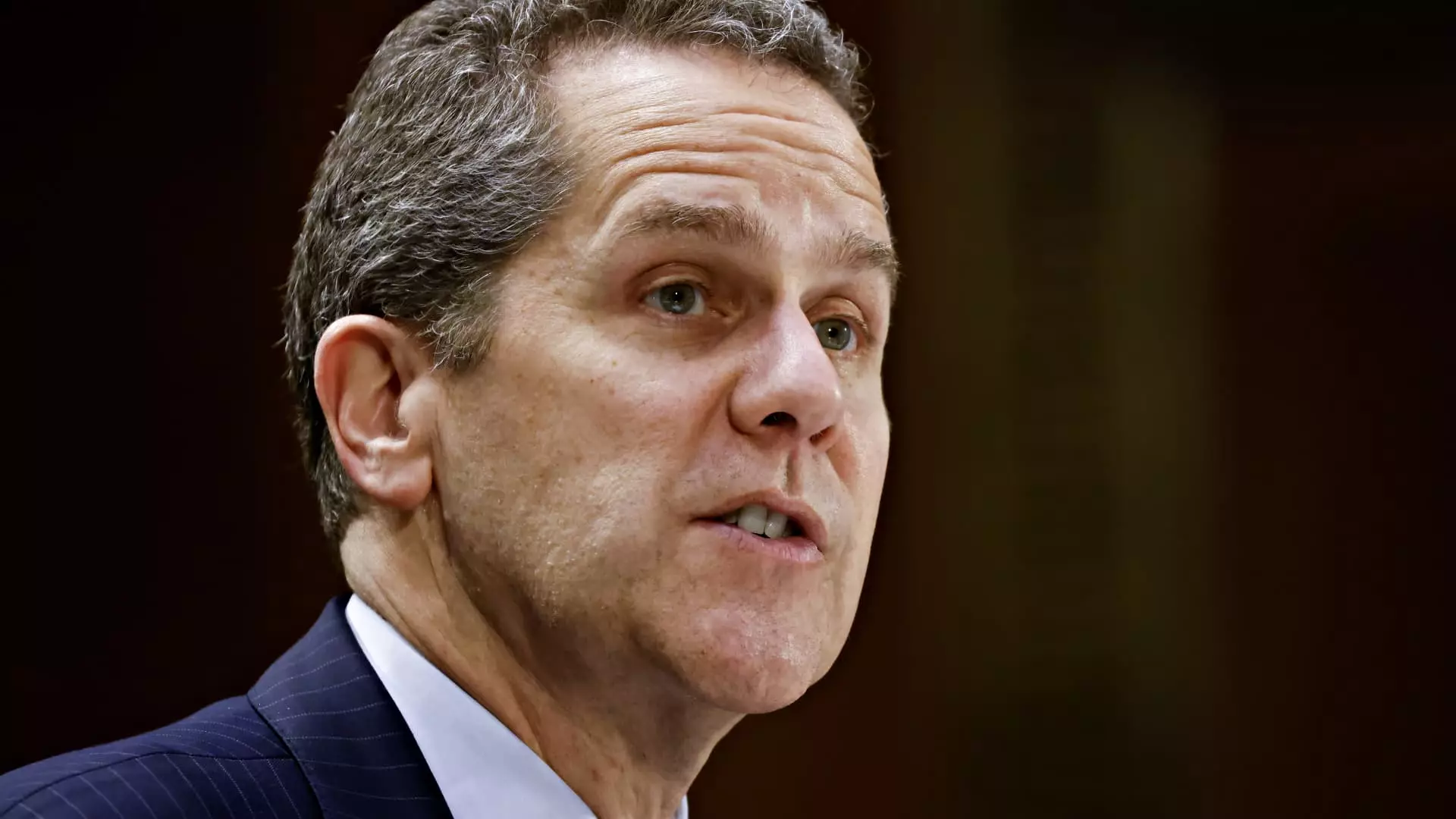As the Federal Reserve braces for a leadership shift in its supervisory ranks, the anticipated resignation of Michael Barr marks a pivotal moment for the institution, especially amidst the backdrop of a new presidential administration. Barr’s decision to step down from his role as vice chair for supervision by the end of February opens the door for President-elect Donald Trump to install a successor, signaling a potential shift in regulatory philosophy towards a more lenient stance on banking oversight. This transition is significant for the future of financial regulation and may influence the broader landscape of American banking.
Michael Barr, who continues to serve as a governor on the Federal Reserve board until 2026, expressed in his resignation statement that he wishes to avoid distractions that could impede the Fed’s mission. By resigning from his supervisory role, he not only allays concerns of a contentious removal by the incoming administration but also ensures that the focus remains on stabilizing the financial system. His tenure has been fraught with challenges, including the legislative backlash following the 2008 financial crisis. Under his watch, significant crises, such as the collapse of Silicon Valley Bank earlier this year, tested his leadership and the resilience of the regulatory framework established to safeguard financial institutions.
The announcement of Barr’s departure was met with optimism from the banking sector, evidenced by a rally in bank stocks. The SPDR S&P Bank exchange-traded fund, a crucial indicator of the industry’s health, posted significant gains immediately following the news. This reaction underscores the banking sector’s eagerness for a regulatory environment that could potentially loosen the constraints established after the financial turmoil of the late 2000s. The implications of this shift could significantly alter the competitive dynamics within the banking industry, as firms prepare for a landscape that may favor expansion and risk-taking over stringent oversight.
With Barr’s resignation, the Federal Reserve has indicated a pause in major regulatory decisions until a new vice chair is appointed. This hiatus may present an opportunity for Trump to select a candidate aligned with his administration’s broader economic agenda. The pressure is now on the incoming administration to choose a successor who will navigate the delicate balance between fostering growth in the banking sector while ensuring that robust safeguards are in place to prevent future crises.
The need for careful consideration of regulatory reforms is underscored by the lessons learned from past financial failures. As the Basel endgame rules, which have faced resistance from the industry, remain in limbo, the new appointee will play a crucial role in shaping the future regulatory landscape. Stakeholders will undoubtedly be watching closely to assess how Trump’s choice for Barr’s replacement will address the intricacies of modern banking challenges and the restoration of public trust in financial institutions.
Michael Barr’s resignation as vice chair for supervision signifies more than just a personal departure; it heralds a potential transformation in regulatory philosophy at the Federal Reserve, with broad implications for the future of banking oversight and stability in the U.S. financial system.

